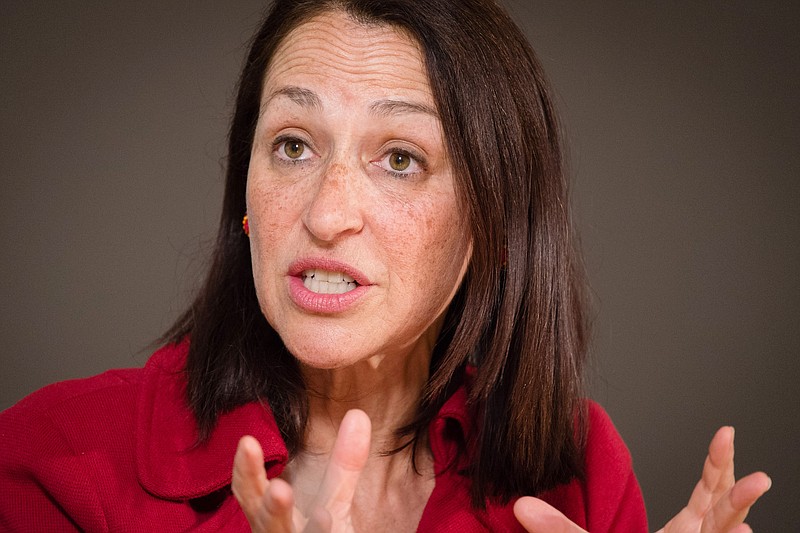WASHINGTON -- From food safety to tobacco regulation and politically charged drug approvals, Margaret Hamburg reset the course of the embattled Food and Drug Administration.
After nearly six years as FDA commissioner, Hamburg announced her resignation Thursday in an email to staff. She said the agency's chief scientist, Stephen Ostroff, will serve as acting head of FDA.
While seen as stabilizing the FDA after a series of short-term leaders, Hamburg also leaves the agency amid unfinished projects and potential changes. Her successor will have to complete food safety and labeling reforms and contend with a Republican Congress focused on streamlining drug reviews.
President Barack Obama named Hamburg to the post in 2009 following a series of high-profile safety problems at the agency ranging from contaminated blood thinners to salmonella-tainted peanut butter that required one of the largest U.S. food recalls.
"What she offered was stability, accomplishment, effectiveness and restoring some of that prestige that it had lost," said Steven Grossman, a former FDA official who now heads Alliance for a Stronger FDA, which advocates for increased FDA funding.
Still, agency critics sometimes questioned Hamburg's judgment. She was criticized by anti- addiction groups for not doing more to combat prescription painkiller abuse, which is linked to over 17,000 U.S. deaths annually. Hamburg defended the agency's ongoing approval of powerful new opioid drugs, saying they are an important option for patients with chronic pain.
Public Citizen, a frequent drug industry critic, said in a statement that the FDA "has grown even more cozy with the industries that it regulates" under Hamburg's tenure.
An agency that regulates one-fourth of the U.S. economy, the FDA's chief is subject to pressure from an array of outside interests, including consumer advocates, multinational corporations, politicians and medical professionals. Hamburg stayed on the job longer than her three predecessors combined.
Harvard University professor Daniel Carpenter said Hamburg shrewdly avoided controversy by delegating many responsibilities to her deputies.
"Her public persona had a kind of sphinx-like character in that she let a lot of other people both make and take the heat," said Carpenter, who studies the FDA.
Under Hamburg's tenure, the FDA was more active on food policy than it had been since nutrition labeling rules were first written in the early 1990s. The agency has worked to put new food safety rules in place, phased out artery-clogging trans fats from the food supply, proposed updates to nutrition facts on the backs of food packaging and required restaurants and retailers to label calories on menus.
The agency also won authority to regulate the tobacco industry for the first time, focusing on how cigarettes are marketed. The agency has banned flavored cigarettes except for menthol; removed labels such as "light," "mild" and "low-tar" from cigarette packs; and increased the size of warning labels on smokeless tobacco.
In her email to staffers, Hamburg emphasized the importance of science in these decisions and other reforms aimed at speeding up drug reviews.
"At the heart of all of these accomplishments is a strong commitment to science as the foundation of our regulatory decision-making and of our integrity as an agency," Hamburg said.
She took control of the agency at a time when FDA officials were accused of allowing politics to influence their decisions. A federal judge ruled that in 2006 the agency deliberately delayed making a decision on the Plan B morning-after pill at the behest of the Bush administration.
The same contraceptive became a political liability under Hamburg when the FDA attempted to approve its sale over-the-counter for teenagers. But at the eleventh hour the head of the department of Health and Human Services intervened and overruled FDA, deciding that young girls shouldn't be able to buy the pill on their own. Hamburg stood by her agency's decision and the drug was approved for non-prescription use in 2013.
Hamburg, 59, is a doctor and former New York City health commissioner. The daughter of two physicians, she is a bioterrorism expert who has also studied neuroscience and AIDS research.
News of Hamburg's departure comes just a week after the agency announced that Robert Califf, a prominent cardiologist from Duke University, would take on the agency's No. 2 leadership position. Califf was considered for Hamburg's job and many FDA observers say he could eventually replace her.
White House spokesman Josh Earnest said Thursday that the president will look for a replacement with "impeccable medical and scientific credentials" as well as strong bipartisan support in the Republican Senate, which will have to confirm the nominee. Senate Majority Leader Mitch McConnell, R-Ky., said he hoped the next FDA commissioner would reduce "unnecessary regulatory burdens that hinder development of life-saving medicines."
Hamburg has at times had to push the White House to move on FDA's rules as industry has pushed back.
David Kessler, FDA commissioner from 1990 to 1997, says Hamburg "deserves enormous credit for pushing the issues as far as she did."
Still, he said, her legacy isn't complete.
"It could be a very strong legacy for this administration, but they need to complete this work," Kessler said.
National on 02/06/2015